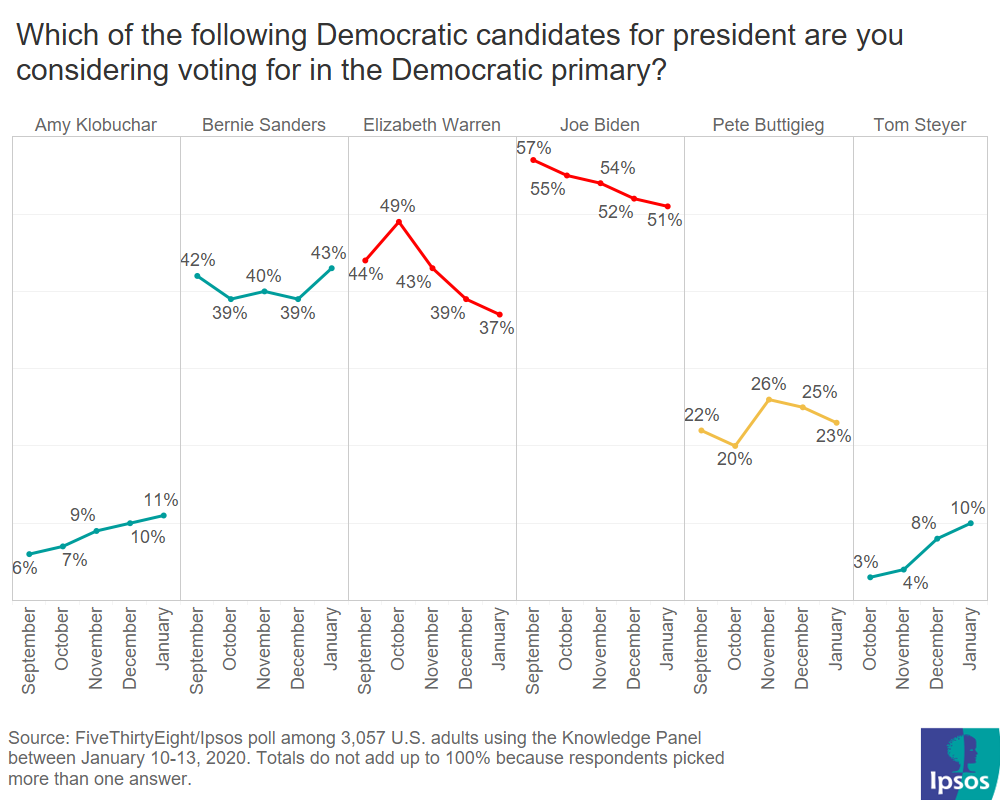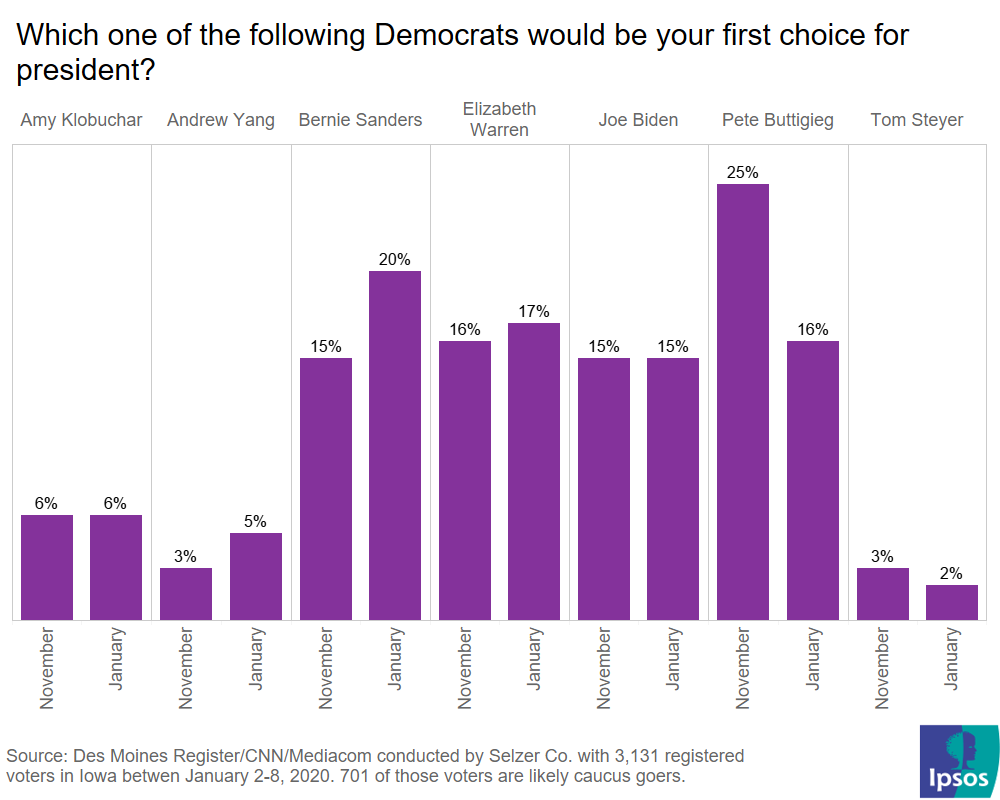Ahead of the Debate, Do National Trends Help Us Understand Iowa?
The Iowa caucus is coming into focus, now just three weeks away. The caucuses will be the first round of voting for the 2020 election and tonight, the first-of-the-nation state will host a debate presented by CNN and the Des Moines Register. With 12 Democratic candidates still in the running for the DNC ticket, the six-person stage is absent half of the contenders at a crucial point for candidates.
In pre-debate polling Ipsos conducted for FiveThirtyEight, top candidates showed a downtick or plateau in their poll numbers. Only Senator Amy Klobuchar and businessman Tom Steyer saw notable increases in their polling numbers, though their chances of becoming the nominee are low at the moment. Both are only being considered by about one in ten respondents.

Support for three of the four frontrunners– Senator Elizabeth Warren, former Vice President Joe Biden, and former South Bend mayor Pete Buttigieg – has cooled. Warren went from being considered by about half of respondents before the October debate to only 37% ahead of January’s contest. Biden’s vote consideration fell six points throughout Ipsos’ polling, while Buttigieg’s vote consideration has stabilized around 23%.
What do these nationwide polls tell us about the inclinations of voters in Iowa who will likely go out and caucus?
The Des Moines Register, in partnership with CNN and Mediacom, released a new poll conducted by Selzer Co. this past Friday, finding that Senator Sanders leads the pack, with a fifth of likely caucus goers supporting him, followed by Senator Warren at 16% and former Mayor Buttigieg at 15%.

After rising nine points in the Selzer Co. poll in November, Buttigieg has dropped to a close third place finish among likely caucus goers. Senator Warren also led the Iowa poll with a tight two-point lead back in September, speaking to a fluidity in Iowa voters’ perceptions of candidates not seen to quite the same extent on the national scale.
One finding that is consistent with nationwide trends is Sanders' modest upward motion. In FiveThirtyEight/Ipsos polling, Sanders has moved his vote consideration up three points since November while in Iowa, about a fifth of likely caucus goers consider him their first pick for president, a 5-point change from two months ago.
After a summer slump and a heart attack, the 78-year-old Vermont senator bounded back in horserace polls in the fall, a pattern that seems to be holding as caucus and primary season kicks into full gear.
Iowa’s likely caucus goers buck nationwide polling in a more obvious way, though. Former Vice President Joe Biden, the stable and unwavering frontrunner in every nationwide poll, is missing from Iowa’s top three.
A combination of reasons can explain some of the mismatch including the idiosyncrasies of the caucus system and the state itself, along with Biden’s own campaign strategy, which is putting much of its manpower behind the Super Tuesday states, where he has a better chance of winning more delegates.
Senator Amy Klobuchar continues to push ahead in Iowa after breakout debate performances that landed her a place on the January debate stage and a nod from likely Iowa caucus goers. Notably, this is also the first debate with no candidates of color on stage.
As the early states begin to consider casting a ballot in the upcoming weeks, this is the final chance for the candidates to duke it out and make an impression with key voters in the right states. Failing to get on stage, make an impression, and gain traction with voters can start to hold real consequences for a campaign now.


